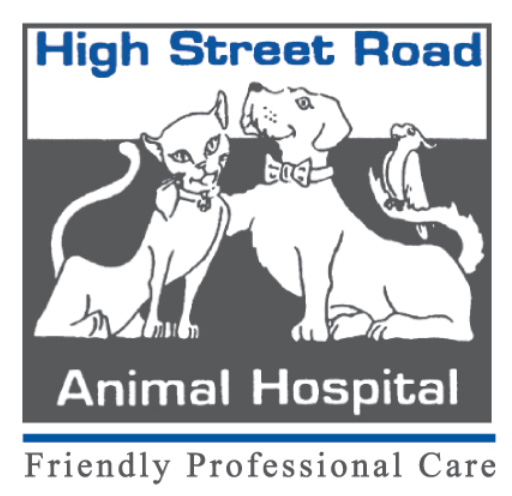As our pets get older they will develop signs of ageing – signs which may be visible to us such as greying around the face to signs not so obvious such as changes to their internal health.
A regular senior health checkup from the age of 7 years will help us keep a close eye out for these changes and give your older pet the care that he/she needs.
How often should my senior pet be seen for a health check?
At High Street Road Animal Hospital, we recommend a Senior Health Check consultation every 6 months from the age of 7 years. This can coincide with their annual vaccination consultation, so you only need to have two routine visits a year with us.
How often should my senior pet have blood work done?
How often should my senior pet have other tests done?
A urine examination should be done every 6 months. We can provide a urine collection pot for you to collect at home at your convenience, or we can collect urine at the Senior Health Checkup.
For our feline senior pets, we advise the addition of a blood pressure check every 6 months. This can be done stress-free in a matter of minutes using a soft cuff around their leg or tail.
Did you know?
Dogs and cats over seven years of age are classed as senior!
These animals are more likely to develop age related disease such as kidney and liver problems, heart disease, hormonal diseases, diabetes, thyroid abnormalities, tumours and arthritis.
Often these diseases can be very advanced before the pet shows any sign that anything is wrong.
Early diagnosis means these diseases can be treated and managed to ensure your pet maintains the best possible health well into their senior years.
We place great importance on pro-active healthcare for senior pets and with this in mind, we have started the Senior Pet Health Program.
Senior Pet Health Program
- 6 monthly health checks, including a full clinical exam to identify any problems.
- A yearly blood profile and six monthly urine tests for earlier diagnosis and treatment of potential problems- at a reduced price.
- 6 monthly blood pressure check for our feline senior pets.
- FREE dental check-ups throughout the year
- FREE weight exams and nutritional advice.
Early detection enables us to treat problems that arise and help maintain your senior pet’s health.

Arthritis Management
Arthritis (Osteoarthritis) is a type of degenerative joint disease commonly affecting older pets. It involves degeneration of the smooth cartilage which lines the ends of bones, inflammation in the joints as well as formation of boney spurs (osteophytes).
Risks for Developing Osteoarthritis (OA)
All dogs and cats are at risk of developing osteoarthritis as they grow older. However some pets are more at risk of developing it much earlier. It is a complex and insidious condition with many risk factors for developing the disease.
- Age. Older pets are more at risk. But young pets can still get it.
- Size: Large dog breeds are more susceptible often due to higher body weight causing more trauma.
- Genetic Pre-Disposition: Some breeds are genetically pre-disposed to developing joint abnormalities (such as hip dysplasia)
- Obesity: Overweight dogs and cats are at greater risk
- Joint trauma: Vigorous exercise, fractures, luxating patella and cruciate injury
Signs of Osteoarthritis
The usual signs of arthritis are intermittent lameness that becomes more frequent and severe. Stiff movement, difficulty rising or going up/down stairs, reluctance to go for a walk and yelping or snapping when touched are all common signs indicating your dog is in pain with arthritis.
Cats are a lot better at masking the signs of pain from arthritis. Often the only sign noticeable is that the cat no longer jumps directly onto the bed, couch or table like they used to, or they land with more of a ‘thud’ when getting down from a height. Their coat may be matted or unkempt as they are not as flexible to groom themselves.
Treatment
The best treatment for osteoarthritis is a multi-model approach, with both medical treatments and non-medical treatments used in combination for the best outcome.
Medical Treatment
- Non steroidal anti-inflammatories (NSAIDS) are effective pain relief medications for arthritis. These drugs relieve the clinical signs of pain, inflammation and swelling associated with the arthritis. They do not treat the underlying condition though.
- Synovan are disease modifying osteoarthritis drugs which are given as 4 weekly injections and then followed up monthly. Synovan acts on the underlying disease process, not just the symptoms and works to retard the progression of arthritis.
- Glucosamine is the key nutrient to help repair damaged joints, as well as keeping the remaining cartilage cells healthy and functioning properly.
- Chondroitin is a major component of normal cartilage and also blocks the enzymes that break down cartilage.
- There are other pain relieving medications that are available to provide relief for arthritis
Non-medical treatment
- Diet- Prescription and Premium diets are available with high levels of glucosamine and chondroitin, as well as optimal ratios of Omega 3 and 6 fatty acids to reduce inflammation in joints.
- Reduced activity- Activity should be restricted to a level that doesn’t aggravate the condition.
- Keep warm- Cold should be avoided as much as possible. Arthritis will always be worse in winter.
- Control weight- Being overweight puts added pressure on joints, increasing pain and degeneration.
Senior Nutrition
We recommend feeding Premium pet foods such as Hills Science Diet which are made from high quality ingredients. This results in less flatulence, smaller stools, shinier coats and healthier bowels.
It is important to feed a diet that is suited to your senior pet. Individual dogs and cats vary in exercise and activity levels, body condition and general health. There is a wide range of diets available and our friendly team can help advise on the best diet for your pet.
Call us to book in!
Book your pet in for an appointment with one of our friendly, experienced vets today!
“Friendly and welcoming”
★★★★★
Very caring staff. It is very friendly and welcoming. Our dog loves visiting this place.
– Meaghan, 5-Star Google Review
Opening Hours
Mon to Fri: 7:30am-7:00pm
Sat: 8:30am-1pm
Sun: Closed
